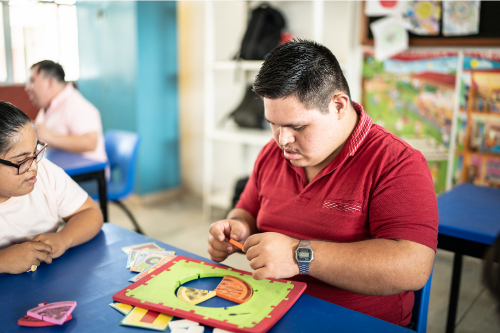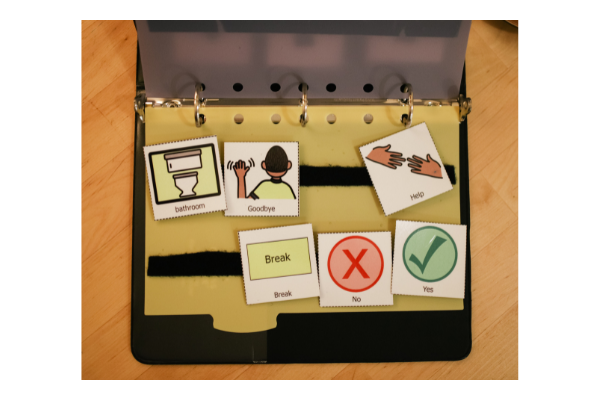Parents and teachers often ask me about special education eligibility, and how a child can qualify for special education services. This post will help break down the 13 eligibility categories for you!
Special Education Assessments
As a School Psychologist, I get many requests for special education assessments. Special education in the schools is designed for children with a disability, who require specialized support (s) to meet their needs.

Child Find Law
It is essential to know that there are 13 eligibility categories that students can qualify for special education services under. Schools are obligated by the Child Find law to find and assess students with suspected disabilities to determine their eligibility for special education services.

13 Eligibility Categories
To determine if a child qualifies for special education services, a free and comprehensive special education assessment is required as part of the process. Through the evaluation, the suspected areas of disability are evaluated, and then eligibility for an Individualized Education Plan (IEP) is determined. If a student is eligible for special education services, they will be eligible under one of the 13 eligibility categories outlined below.
- Autism Spectrum Disorder (ASD): Autism Spectrum Disorder refers to a developmental disability that affects social interaction, communication skills, and behavior. Students diagnosed with ASD may require specialized support to help them thrive academically, socially, and emotionally.
- Specific Learning Disability (SLD): SLD encompasses a range of learning difficulties that impact a student’s ability to acquire or use specific academic skills. Examples include dyslexia, dyscalculia, and dysgraphia. Specialized interventions and accommodations can help students with SLD succeed in the classroom.
- Intellectual Disability (ID): Students with intellectual disabilities have significant limitations in intellectual functioning and adaptive behaviors. Special education services are tailored to address their unique needs and promote their overall development.
- Emotional Disturbance (ED): Emotional Disturbance encompasses conditions such as anxiety disorders, depression, or bipolar disorder, which adversely affect a student’s educational performance. Specialized support, including counseling and behavioral interventions, is provided to help students manage their emotional challenges effectively.
- Speech or Language Impairment (SLI): SLI refers to communication disorders that affect speech sounds, language development, or the ability to articulate thoughts effectively. Speech therapy and targeted interventions are essential to support students with SLI in their communication skills.
- Hearing Impairment (HI): Students with hearing impairments have varying degrees of hearing loss. Special education services may include assistive listening devices, sign language interpreters, and other accommodations to facilitate effective communication and learning.
- Visual Impairment (VI): Visual Impairment includes conditions ranging from partial sight to total blindness. Students with visual impairments receive specialized instruction, adaptive materials, and assistive technology to access educational content and navigate their environment confidently.
- Orthopedic Impairment (OI): OI refers to physical disabilities that affect a student’s ability to move, manipulate objects, or participate fully in educational activities. Specialized supports, such as physical therapy and assistive devices, are provided to promote accessibility and independence.
- Other Health Impairment (OHI): OHI covers medical conditions such as ADHD, asthma, epilepsy, or chronic illnesses that adversely affect a student’s educational performance. Accommodations, medication management, and individualized plans are implemented to support their unique needs.
- Traumatic Brain Injury (TBI): TBI results from an external force causing brain damage, leading to cognitive, physical, or psychosocial impairments. Specialized interventions focus on cognitive rehabilitation, behavioral strategies, and other supports to promote recovery and educational success.
- Deafness-Blindness (DB): Students with both deafness and blindness require highly individualized and specialized support to access information and communicate effectively. Multisensory approaches, tactile communication methods, and assistive technology play crucial roles in their education.
- Multiple Disabilities (MD): Multiple Disabilities refers to students with significant impairments in multiple areas, such as intellectual functioning, sensory disabilities, or physical limitations. Comprehensive, interdisciplinary approaches are employed to address their diverse needs.
- Deafness: A hearing impairment so severe that a child is impaired in processing linguistic information through hearing, with or without amplification, that adversely affects a child’s educational performance.

Individualized Education Plan (IEP)
Once eligibility is determined, an Individualized Education Plan (IEP) is created to make sure that a student receives Free and Appropriate Public Education (FAPE). Special education loves acronyms… Haha! Feel free to download this free handout I created with the most common special education acronyms.
What if a child already has a medical diagnosis? Don’t they automatically qualify??
I need to note that if a student has a medical diagnosis of a disability (ex. Attention Deficit Hyperactivity Disorder, Autism, etc), that does NOT automatically make a student eligible for special education services. I know that can sound confusing, but to be eligible for special education, there MUST be a significant impact on the student’s educational performance.
Disagreements on Eligibility
At times, the school and parents can disagree on eligibility. If that happens, there are steps that parents can take to resolve the disagreement. Those steps are outlined in the parent Procedural Safeguards that are given at the beginning of every Individualized Education Plan meeting.
Navigating Special Education
Navigating the world of special education can be tricky. I am here to help empower you with education, support, and knowledge about the special education process. My goal is to ensure equal access to quality education for all students. By recognizing the uniqueness of each individual and providing tailored support, we can work together to help each child to overcome challenges and unlock their true potential.
As always, I’m happy to help you navigate the special education process! Contact me here for a free 15-minute phone consult 🙂






